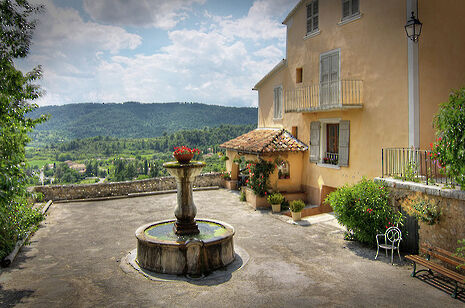Book: The Debt to Pleasure
This week, Jemma Slingo explores the refreshing gastronomical gluttony in John Lanchester’s unconventional cookbook

To a world beset by vegan bloggers and their buckwheat-brandishing followers, John Lanchester offers a delicious antidote. The Debt to Pleasure (1996) is not a “conventional cookbook”. Indeed, the term “conventional” can be applied very little in Lanchester’s debut novel, least of all to its narrator, who we follow on a dark journey of art, appetite and omelettes.
The Debt to Pleasure is ostensibly a set of seasonal “culinary reflections” provided by Tarquin (né Rodney) Winot – scholar, snob, and passionate gourmand – as he travels from Portsmouth to the heart of Provence. Peppering his food-oriented monologue are biographical details and tit-bits about the lives – or, more often, the deaths – of those around him.
Death seems to be rather a hobby of Tarquin’s. In fact, the extraordinary casualty count gives the disquieting impression that the novel, while professing itself to be one thing, will turn out to be something else entirely. His bouillabaisse, as it were, is smelling fishier than usual. As we cross the Channel, and watch Tarquin – decked out in dark glasses, wig and an offensively tickly false moustache – focus his gaze on a honey-mooning couple, we suspect that his journey to Provence is fuelled by something more macabre than gastronomic spirituality.
Frankly, however, we are too busy feasting on Tarquin’s recipes to think about his unsavoury motives. Previously a food critic for the Observer, Lanchester packs his narrative with culinary delights; the book is a banquet of blinis, beluga and ratatouille baguettes. Forget about Bloomsday, where Ulysses fans trek around Dublin in the footsteps of Joyce’s hero, we need a Debt to Pleasure-inspired culinary romp in south France.
Tarquin is crying out for a Masterchef spin-off show. Indeed, the recipes are only matched by the narrator’s deliciously stodgy prose style; it is a sign of Lanchester’s skill that he can sustain that level of verbosity without making us sick to the stomach. Not that Tarquin is always averse to such measures; in an episode early in the novel, he describes – in terms alarmingly applicable to Peterhouse’s culinary offerings – a school meal which “Dante would have hesitated to invent”, consisting of “unabashed gristle [that] floated in a mud-coloured sauce whose texture and temperature were powerfully reminiscent of mucus”. Recovery time is quick, however, and two pages later we are munching our way through Tarquin’s three course “Winter Menu”.
Curiously, however, it is the indulgent depictions of food that gives The Debt to Pleasure moral bite. Although the novel seems to be about the appetite of its narrator, it actually reveals far more about the gluttony of its reader. We are seduced by Tarquin because we are able to eat with him, cheerfully ignoring the fact that there may be something more offensive than oregano in his Irish stew. This sense of self-ensnarement culminates in the novel’s conclusion; the sticky fate of the honey-mooning couple who dine with Tarquin echoes Lanchester’s own entrapment of his reader. As we are cast into the less-than-appetising role of the bride-groom, we are stitched up by our own stomachs. If Lanchester’s highly unconventional cookbook teaches us anything, then, it is to always bite the hand that feeds us
 Lifestyle / Which Cambridge tradition are you?6 October 2025
Lifestyle / Which Cambridge tradition are you?6 October 2025 News / Gardies officially closes4 October 2025
News / Gardies officially closes4 October 2025 News / Cambridge to have ‘England’s first official cycle street’7 October 2025
News / Cambridge to have ‘England’s first official cycle street’7 October 2025 Arts / The Fitzwilliam’s first-ever charged exhibition is worth every penny3 October 2025
Arts / The Fitzwilliam’s first-ever charged exhibition is worth every penny3 October 2025 News / Jensen Huang, Celeste, and Mia Khalifa to speak at the Union5 October 2025
News / Jensen Huang, Celeste, and Mia Khalifa to speak at the Union5 October 2025









